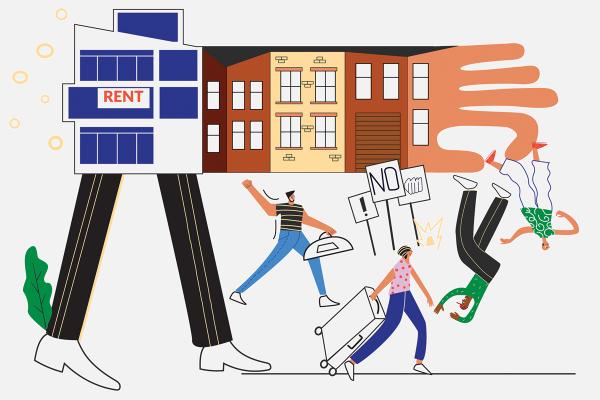IF MARY AND JOSEPH were living in Missouri today and had to make their own shelter after the innkeepers turned them away, Jesus would be greeted by police officers instead of shepherds. Why? In January, Missouri initiated a new statewide law criminalizing homelessness. The law (and similar laws in several states) is based on template legislation from the Cicero Institute, a right-wing group that peddles legal schemes that limit effective solutions and strip support from people who can’t afford a place to live. If Moses and his tribe were wandering in Tennessee, a law that went into effect in July — supported by Cicero — allows for felony charges for pitching a tent on state-owned property.
Across the country, politicians are passing laws that penalize our neighbors who can’t afford a place to live and who must sleep, shelter, and conduct other life-sustaining activities in public. We have seen the results of those laws at the local level when city councils come up with ineffective — and plain bad — ideas to deal with homelessness. Now there is a well-funded, coordinated push to raise those bad ideas to the state level.
Read the Full Article

